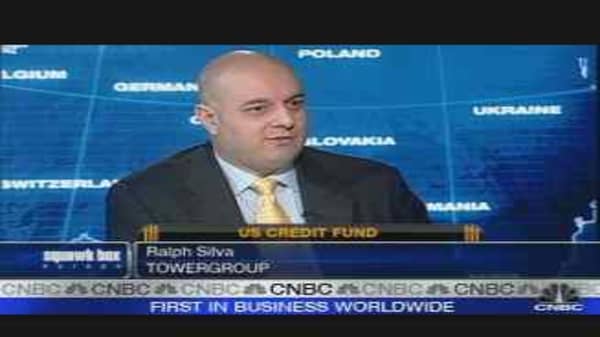"I think that we haven't seen the end of this, I think we've just seen the beginning," Silva told CNBC's Geoff Cutmore.
"I think we've seen the end of the financial services troubles and now … we're going to start to the see the beginning of the corporate problems," Silva said.
About 40% of the credit market is corporate paper and companies could have problems servicing those loans, Silva told CNBC.com. Defaults in the corporate loan market typically take longer to feed through and become apparent, he added.
Citigroup, Bank of America and JPMorgan unveiled a $80 billion fund Monday to limit the impact of the two-month credit crunch on the global economy. The U.S. banks are still hammering out details of how the fund will work and have been asking European banks to jump in and back it.
But Silva said one of the key reasons for which the U.S. banks have teamed together to create the fund is to protect their own interests, along with the belief they can turn a significant profit from holding on to the devalued assets until the market recovers.
Some traders fear it may also help banks avoid reporting losses on troubled assets, although its purpose is to bring back confidence in the credit market.
"Why do they feel that they have to get into the market now and correct the market now?," Silva said. "We've hit this point where the capital markets have grown beyond the capabilities of the central banks and the Treasuries to control them."



